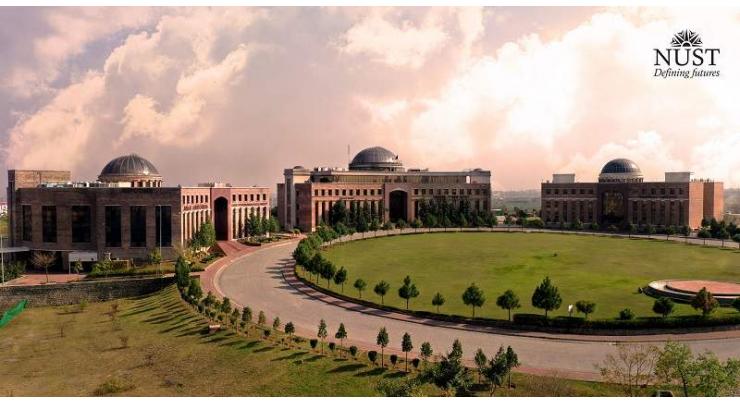
NUST Institute Of Policy Studies Holds Webinar On Peace In Afghanistan
Umer Jamshaid Published June 02, 2021 | 05:53 PM

NUST Institute of Policy Studies organised a webinar on the prospects of peace in Afghanistan in the wake of the US exit here on Wednesday
Titled, “Afghanistan at Crossroads: Promise of Peace & Geopolitical Imperatives,” the webinar brought together eminent experts, veteran security analysts, think tank leaders, and scholars to discuss the challenges of establishing peace in the post-US future in Afghanistan.
He said that Afghanistan’s neighbours need to act with maturity and deep understanding of regional security dynamics to be able to contribute positively to normalisation in the war-torn country.
In this regard, Dr Kozin said international development organizations and major powers needed to commit major material assistance to Afghanistan.
Dr Uysal stressed that, rather than intervene and interfere in Afghan affairs, it was the duty of all stakeholders to help Afghans build peace sincerely without any ulterior motives.
He said that the tendency of South Asian conflict dynamics to be projected into the Afghan situation had also undermined the cause of peace.
Mr Gailani regretted the abysmal state of development in the country and said that civil war, if it happened, will be a tragedy.
He mentioned that their political and diplomatic acumen now was far sharper than in the past as was evidenced during their parleys with the U.S. as well as the intra-Afghan talks. He stated that if the US was serious about peace in Afghanistan, it should try and form an interim unity government in Afghanistan before exit.
had continuously changed the goalpost in Afghanistan as a result of which the end state in Afghanistan was hazy. He said that there was a need to pay attention to the role of proxies that did not desire peace in Afghanistan.
He said these forces were the same that also wanted Afghanistan’s neighbours to be disturbed.
Related Topics
Recent Stories

Punjab CM Maryam Nawaz in police uniform at Chung police center

Currency Rate In Pakistan - Dollar, Euro, Pound, Riyal Rates On 25 April 2024

Today Gold Rate in Pakistan 25 April 2024

Mired in crisis, Boeing reports another loss

Session Awarding Ceremony 2024 held at Cadet College Muzaffarabad

Austrian ski great Hirscher to make comeback under Dutch flag

Pakistan, Japan agrees to convene 'Economic Policy Dialogue'

FM Dar conveys deepest sympathy on torrential rains devastation in UAE

Spain PM Sanchez says weighing resignation after wife's graft probe

Tennis: ATP/WTA Madrid Open results - 1st update

Long-lost Klimt portrait auctioned off for 30 mn euros

Osaka seals first win on clay since 2022 in Madrid
More Stories From Education
-

AIOU to host 37th annual conference of AAOU in Oct
13 hours ago -

SSC, HSSC annual exams in Sindh to be conducted in May
12 hours ago -

BISE Larkana SSC exams start on May 02
14 hours ago -

UUVAS arranges seminar to commemorate Allama Iqbal
17 hours ago -

BISE Hyderabad to announce HSC-Il result exams on April 25
17 hours ago -

Eco-friendly agri technology imperative to overcome environmental pollution: Hina Hafeezullah
3 days ago
-

Sindh to upgrade primary schools to reduce dropout rate
6 days ago -

SU extends deadline for submission of LLB (Hons) exam forms with late fee
6 days ago -

COMSTECH to hold 10th STEP on Facing Elderly
7 days ago -

Primary exams underway in Larkana
8 days ago -

SPSC starts viva of competitive exams 2020
8 days ago -

ABISE annual exams for secondary school certificate to begin from Thursday
8 days ago











